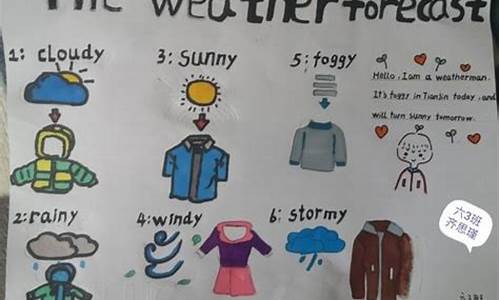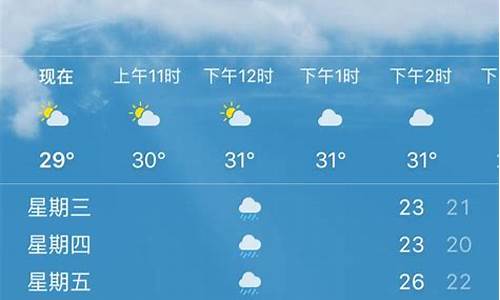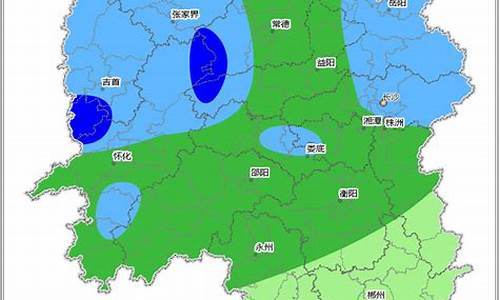不顾天气恶劣冒着风雨英语_不惧天气恶劣英语
1.恶劣天气的演员表 恶劣天气介绍
2.九年级英语12单元重点语法
3.不惧风暴剧情预告
4.关于老人摔倒扶不扶的问题的英语作文范文
5.英语里at,in,on,with,and,for用法的区别是什么?
恶劣天气的演员表 恶劣天气介绍

1、路易斯·托萨尔 Luis Tosar(饰 Pastor)
2、路易斯·卡叶赫 Luis Callejo(饰 Capataz)
3、杰米·洛佩斯 Jaime López(饰 Nieo)
4、文森特·罗米洛 Vicente Romero(饰 El Triana)
5、坎迪多·乌兰加 Kandido Uranga(饰 El Viejo)
6、胡安霍·佩雷斯·尤斯特 Juanjo Pérez Yuste(饰 El Segovia)
7、阿德里亚诺·卡瓦略 Adriano Carvalho(饰 El Portugués)
8、约伊玛·巴尔德斯 Yoima Valdés(饰 Madre Familia Pobre)
9、莫娜·马丁内斯 Mona Martínez(饰 Mujer Entrada Cueva)
10、玛利亚·阿尔方萨·罗索 María Alfonsa Rosso(饰 Guardesa)
恶劣天气的剧情简介
故事发生在1946年。内战过后,西班牙中心地带的某个地方只剩下绝望,贫穷和流犯。有一个男孩不断逃亡,并在沟渠中找到了藏身之处。搜查队离开后,他面对的是一个充满危险和干旱的平原。万幸的是,他在穿越平原的路上遇到了一个牧羊人,两人最终选择同行。一路上,他们必须应对饥饿和缺水,并逃避由工头派来寻找男孩的人。牧羊人成为男孩的导师:他解释了他的职业和他对生活的理解。随着时间的流逝,牧羊人也知晓了男孩想要逃避的究竟是怎样的恐惧。
九年级英语12单元重点语法
How do you study for a test?
[教学目标]1.谈论如何学习英语。(talk about how to study English)
2.学习用 “动词+ by + doing”表示 “方式、方法。”(by doing)
3.复习现在完成时。(he/has + done)
4.复习提建议的方法。(What about…? Why don't you…?)
5.学习一些重点词组。(key phrases)
[单元内容概述] 一.单词。
1.名词类:pronunciation,voice,skill,grammar,comma,challenge,sentence,learner,speaker,solution,secret,
term, service, status, symbol, expert, tune,
2.动词类:memorize, frustrate, add, pronounce, complete, ring, impress,
3.形容词类:specific,frustrating,excited,spoken,native,mobile,ashamed,old-fashioned,outdated,
fashionable, latest, embarrassed, main
这些词都是四会词汇,所谓四会词汇就是:一会读音、二会拼写、三会意思、四会用法。
e.g. excitedget excited adout对…感到很兴奋
4.副词类:aloud, differently, quickly, slowly, fast, actually, easily,
[重点词组](Key Phrases)二.词组
1.not at all 一点也不 2.end up(doing) sth 结束做某事
3.make mistakes 犯错 4.later on 后来
5.be afraid to do 害怕做某事 6.laugh at 嘲笑(某人)
7.take notes 作笔记 8.enjoy doing sth 喜欢做某事
9.make up 组成 10.mobile phone移动电话,手机
11.on one's way to在某人去某地的路上 12. be shamed of因…感到惭愧
13.behind the times过时的,老式的14. turn off 关掉(电视、收音机、电灯等)
15.worst of all最糟糕的是 16.fit in with sb 与某人相处融洽
17.native speaker 说本族语的人 18.begin with 以…开头
19.the best way to do…做某事最好的办法 20.write down 写下,记下
21.once more又一次,再一次 22. first of all 首先
23.give up 放弃 24.think about 考虑
25.at the time 当时 26.make sb do sth 使某人做某事
27.send fast / short messages 发快/短信 28.status symbol 身份的象征
29.spend … on sth在…花费(时间,金钱) 30.if… or not 是否
31. be with sb 与某人在一起 32.get excited about 对…感到激动
三.句型
1.How do you study for tests? Well, I study (by working) with my classmates.
2.(He) you ever (studied) with a group? Yes, I he. I'(ve learned) a lot that way.
3.I don't he a partner to practice English with. May be you (should join) an English club.
4.(What about) reading aloud to practice pronunciation?
5.(Why don't) you join an English language club?
后面的3、4、5句都是表示提建议的方法。
[重、难点讲解]一.重点词汇
1.voice n.说话声;声音(the sound that are made when people speak or sing)
e.g. He spoke in a quite (loud / angry / kind) voice. 他悄声/大声/生气/友好地讲话。
The little girl has a very sweet voice.那个小女孩声音甜美。
We could hear the children's voice in the garden.我们能够听见花园里孩子们的说话声。
He's got a good voice; he sings well.他嗓音好,歌唱得好。
◆注意:voice ;sound 与 noise 的区别:
(1)sound“声音; 响声”指各种各样的声响。(可数名词)例如:
While I worked in my room, I heard a strange sound in my house.
当我在房间里工作的时候,我听见房间里有一种奇怪的声音。
When she woke, her ear caught the sound of knocking.她醒来时听到了敲门声。
There was a sound on footsteps on the staircase outside.外面楼道上有脚步声。
(2) noise 声音(可数,不可数)Don't make so much noise! 别吵!
The noise of traffic kept him awake.车辆的嘈杂声使我怎么也睡不着。
We could not hear them because of the noise from the factory.
因为工厂的噪音,我们听不见他们在说什么。
voice人说话声;声音sound声音; 响声,各种各样的声响。(可数名词)
noise声音(尤指噪音)(可数,不可数)
2.frustrate v.使失望;使沮丧;使厌烦
e.g. He hoped to set a new record, but(was frustrated)by bad weather.
他本希望能创造新记录,但因天气恶劣而未果。
The bad weather (frustrated) all our hopes of going out.
恶劣的天气使我们外出的希望落空。
Marry (was frustrated by) the failure of the English examination.
英语考试未及格使玛丽很失望。
frustrate使失望;使沮丧;使厌烦frustrated、frustrating是相应的形容词。
●frustrating adj 令人沮丧的;令人失望的(通常修饰事物)
All this is rather(frustrating).所有的这一切都很令人失望。
I found it(frustrating)that I can't speak other language.我不会说别的语言,感到惘然若失。
●frustrated a.感到灰心的,感到沮丧的 (通常修饰人)
e.g. I felt frustrated at that time. 那时我觉得很沮丧。
frustrated感到灰心的,感到沮丧的(通常修饰人)
frustrating令人沮丧的;令人失望的(通常修饰事物)
◆类似的还有:
interesting令人感兴趣的 interested 感兴趣的
disointing令人失望的 disointed 感到失望的
boring 无聊的 bored 感到无聊的
exciting令人兴奋的 excited 感到兴奋的
worrying 令人担心的 worried担心的;着急的
surprising 令人吃惊的 surprised惊奇的;惊讶的;诧异的
mbarrassing 令人困窘的 embarrassed窘的;尴尬的;局促不安的
3.impress v.使感动;给…深刻印象;使印象深刻
e.g. The visit to Shanghai(impressed)me a lot.上海之行给我留下了深刻印象。
My father impressed on me the(importance)of hard work.我父亲使我铭记勤勉的重要。
4.by 的用法◆by是介词,表示通过…方法或途径的意思,译成“靠,通过”,后面可加名词或名词短语。
e.g.The house was destroyed(by fire).房屋被火烧毁了。
trel(by air /land/sea).航空(陆路,航海)旅行
go(by train /boat/ bus)乘火车(船,公共汽车)去
shake sb.(by the hand)和某人握手
I study English(by watching English movies).我通过看英文**学英语。
by后面加名词如:by fire、by air、by sea、by train、by bus或名词短语by the hand或动名词by watching
◆另外,by作为介词的意义有很多,我们也已经学过一些用法,总结如下:
(1)在…旁边,靠近 e.g.There is a power station by the river.河边有一个电厂。
(2)沿着,经由 e.g. come by the highway 由公路来
(3)由于 e.g. by mistake 由于差错
(4)被,由 e.g. some articles written by Lu Xun. 一些由鲁迅写的文章
(5)表示面积 e.g. a room 5m by 4m一间长五米、宽四米的房间
(6) 逐批 e.g. one by one 一个接一个
5.end up (doing sth) 终止(做某事),结束(做某事)
end up后面接动名词短语,相当于finish doing sth
finish doing sth表示结束做某事,事情已完成
e.g. When we practice speaking English,we often end up speaking in Chinese.
◆要注意它与stop doing sth 的区别:
stop doing sth指停止做某事,有可能是暂时的,不久还会继续下去。
e.g.We had to stop singing because somebody knocked at the door因为有人敲门,我们不得不停止唱歌。
◆另外,end up with…以…而告终,后面加名词或动名词
e.g. The party ended up with her singing. 晚会以她的歌唱而告终。
6.fit in(with).(和…)相处融洽; 使适应;(与…)一致
e.g.The picture doesn't(fit)in here. 那幅画不适合挂这儿。
He doesn't(fit in)with their other friends.他和其他的朋友相处得不好。
We must(fit in)our plan with yours.我们必须使我们的和你们的一致。
Your ideas(fit in with)mine.你的想法和我的一致。
The house(fits in)beautifully(with)its surroundings.这房子和周围的环境十分谐调。
7.get excited 变得兴奋
get是系动词,get+ adj./过去分词, 有“(逐渐)变得…”的含义
e.g. get mad 生气get annoyed生气; 恼火
get lost 迷路get interested变得感兴趣
get worried 担心get married结婚
这些都是get加上形容词或加上过去分词,以过去分词形式的形容词。
get tired变得疲劳get old变老
get clear 变得清晰了get amazed 变得异常惊讶
The long journey got the children all tired.长途旅行使得孩子们疲惫不堪
注意get加上adj或以过去分词出现的形容词的含义。
二.重点句型1.He thinks(studying grammar)is a great way to learn a language.
他认为学习语法是一种学习语言的极好的方法。
studying grammar在这个句子当中是充当is a great way to learn a language的逻辑主语。
动名词即动词V-ing形式,相当于名词。在句子中可做主语,宾语,表语等。
(e.g.)I think that(doing lots of listening practice)is one of the secrets of learning.
doing lots of listening practice 是动名词短语,作从句中的主语。
listening做定语,修饰 practice
在宾语从句中doing lots of listening practice是主语,listening修饰 practice。
(2)I am enjoying(learning English).(动名词短语做宾语)
(3)(Seeing)is(believing).眼见为实。(seeing做主语,believing做表语)
2.I don't he a partner to(practice)English(with).我没有一个可以一起操练英语的搭档。
◆在英语中,很多介词放在句末时,都不可以省略,否则,句子结构不完整。又如:
I don't he a partner to practice English(with)这个with不能省,则句子结构不完整。
e.g.I don't he a friend to talk(with).句中with不能省。
I don't he a friend to tal kwith.我没有朋友可以聊天,可以交谈。
I want to find a room to live(in).我想找间房子住。这里的in不能省掉。
This is just the book I'm looking(for).这正是我找的那书本。
同样的for不能省掉。
所以大家要注意介词是不能随便省略的。
二.语法1.如何提建议◆提建议的有以下种种:
(What about)listening to cassettes?(What about…?)
You(should)read English aloud. (You should…)
Listening(can)help you. (can…)
(Why don't you)join an English language club to practice speaking.(Why don't you…?)
(Would you mind)remembering new words by flashcards?( Would you mind…?)
(Please try to)talk with your friends in English as much as possible.(Please try to…)
(Why not)go out with English-speaking friends. (Why not …)
(You'd better)practice English every day.(You'd better…)
常见的提建议的方法有:What about do sth?、Why not do sth、Why don't you do sth?、
You'd better do sth、Would you mind do sth?
2.By + V-ing 表示“方式、方法”
eg.He makes a living by fishing.他靠打鱼为生。
I improved my English by listening to pop songs.我通过听流行歌曲而提高我们的英语。
◆主意下面表示学习英语方法的目标句型:—How do you study English?
—I study English by listening cassettes.
by studying with a group.by watching English programs on TV.
by enjoying English songs.by taking part in English classes after school.
by getting an English tutor.by reading English magazines and newspaper.
by surfing the Internet.by making flashcards.
by reading the textbook.by asking the teacher for help.
by making vocabulary lists.by taking notes carefully.
by hing the English class carefully.by finishing my homework seriously.
Unit 1 I used to beafraid of the dark.
教学目标(Talk aboutwhat youused to be likeandhow we've changed)
·谈论自己的过去及现在的变化
(Practise using thetarget language.)·练习使用本单元的目标英语
(Review the PastTense)·复习一般过去时
In this unit we willtalk about what weused to be like.Everyone has a lot ofold stories.
Every day we aregrowing up.And a lot of changeshe hened to us.
Therefore sometimeswe'd like to talkabout our past.
Through learning thisunit, we can talkmore about ourselvesin a proper way.
单元内容概述一、单词1.名词类:dark,spider,insect,mark,emotive,expression,code,kiss.
2.动词类:sure,terrify,seek,type,seal,indicate,comprehend,consist,describe.
3.形容词类:dark,on,bored,secret,4.副词类:right,mostly,sideways.
二、词组和短语(Key Phrases) 1.used to过去常常
2.be terrified of害怕…;恐惧…3.in the past fewyears在近几年
4.be made up of由…组成 5.sound like听起来像
6.go right home立刻回家7.can't stop doingsth.禁不住做某事
8.instead of代替,而不是9.make faces做鬼脸
10.consist of由…组成11e from 来自于…
12.stand for代表,代替13.face to face面对面
14.such as例如15.worry about担心
16.on the swim team在游泳队17.play the piano弹钢
18.chat with和…聊天19.miss the old days怀念旧日子
20.these days最近21.take sb…to do sth花费某人(多长时间)做某事
三、交际用语1.A:Mario used to beshort.(used to…)B:Yes,he did.Now he's tall!
2.Girl:Hey,Steve!Overhere!Don't youremember me?Boy:Oh,wow!You're Paula,aren't you?
(反意疑问句)Girl:That's right.Boy:But you used tobe really quiet,didn't you?
(反意疑问句)Girl:Yeah.I wasn'tvery outgoing.
Boy:No,you weren't.But you were alwaysfriendly.Wait a minute!
Did you us to playthe piano?Girl:Yes,I did.But now I'm moreinterested in sports.
I play andI'm on the swimmingteam.Boy:Wow!People surechange.
3.A:I used to eatcandy all the time,Did you?(简略式疑问句)
B:Yes,I did.I used tochew gum a lot.A:Did you?B:Yes,I did.
4.A:Did you used to be afraid of the darkB:Yes,I did.
A:Are you stillafraid of the dark?B:No,I'm not.How about you?
A:Me?Oh,yes!I'm terrified ofthe dark.B:So,what do you doabout it?
A:I go to sleep withmy bedroom light on.(with+O+OC)
重、难点讲解一、重点词汇
1.mostly adv.大多数地,大部分,主要的(=almost all,generally 几乎全部,大多)
e.g.I spend my freetime mostly watchingTV.我闲暇时大多在看电视.
There are only 7girls in our PE class,so the class ismostly boys.
在我们体育班仅有7个女孩,因此这个班大多数是男生。
2.right adv.立即;马上(=right away;at once)
right 在本单元用作副词,修饰动词。例如:Come right in.快进来。
I'll be right there.我马上到那里。He would come rightback.他会立即回来。
I'll come right down.我马上下来。I'll go right aftersupper.我吃完晚饭就马上走。
·注意:right用作副词时还有其他的含义。例如:You didn't spell theword right.(对,正确地)
This telephonedoesn't work right.(合适地,顺利地)
Go right on and youwill see the housein the corner.(一直地,直接地)
The bullet()went right throughhis arm.(完全地,彻底地)
3.used to 过去常常;以前常常(仅用于过去式)
“used to+ 动词原形”这一结构表示过去的习惯(过去经常反复发生的动作)或状态(现在已不复存在),
只有一种形式,即过去式,用于所有人称。否定形式为used not to.疑问式为Used you to…?Used he to…?等
例如:①I used to walkalong the road aftersupper.我过去常常在晚饭后沿这条马路散步。
②He used not to likePeking opera,but nowhe's very found of it他过去不喜欢京剧,但现在非常喜欢。
·注意:used to的读音,读作/'ju:stu/,而不读/'ju:zdtu/。
现在大多数人在口语中或不太正式的书面语中对否定式和疑问式常使用与do连用的形式。
例如:①I didn't usedto like skating,butnow I like it verymuch.
我过去不喜欢滑冰,但现在很喜欢。
②Did you use to livein Shanghai? 你过去住在上海吗?
③There used to be achurch here,didn'tthere?以前这里有一座教堂,是不是?
·另外,含有used to的句子的反意疑问句一般不用usedn't+主语(见上面例③)。
又如:He used to livein Shanghai,didn't he? Yes, he did./No, he didn't.
4.be terrified of害怕(=be afraid of)be terrified of后面通常接名词或动名词。
例如:①I'm terrifiedofthe dark.(名词)
②The old lady wasterrified ofcrossing such a busystreet.(动名词)
二、重点句型1.I go to sleep withmy bedroom light on.
·with+O+OC即with后接宾语和宾语补足语,其中宾语补足语补充说明宾语的状况。
OC可以是形容词、副词、介词短语、过去分词、现在分词、不定式等。
①with+O+adj.eg.I like to sleepwith windows open.(形容词)
②with+O+adv.eg.Anderson waslying on the bedwith all his clotheson.(副词)
③with+O+介词短语eg.We sat on the dryglass with our backto the wall.
He was asleep withhis head on his arms.The teacher came inwith a book in hishand.
He said goodbye withtears in his eyes.Mr Brown is talkingwith Bob with hishands in his pocket.
④with+O+过去分词eg.All the afternoonhe worked with thedoor locked.
You cannot go out toplay with the workunfinished.
⑤with+O+现在分词eg.I won't be ableto go on holiday withmy mother being ill.
⑥with+O+不定式So in the afternoon,with nothing to do,I went on a round ofthe bookshops.
With five minutes togo before the lasttrain left,we arrivedat St.Pancras.
I can't go out withall these dishes towash
2.Before I startedhigh school, I usedto spend a lot oftime playing gameswith my friends,…
spend是动词,意思是“花费(钱,时间)”,或“度过”
下面是常用的两种结构:·sb.spend time(money)on sth.·sb.spend time(money)in doing sth.
e.g.①Every day Ispend two hours onhomework.
②Mary spent a lot ofmoney on her new car.③He will spend hisholidays treling.
④He spent ninetyminutes in workingout the mathsproblems.
·注意上面①、④两个例句均可以用It takessb. some timeto do sth.结构来改写:
①It takes me twohours to do homework.every day.
④It took him ninetyminutes to work outthe maths problems
3.E-mail English isa new kind of Englishthat many people useto se time.
E-mail英语是一种新兴的英语,许多人用来节省时间。
that many people useto se time是定语从句,用来修饰先行词newkind of English
·注意:use to 与usedto的区别,二者后面都加动词原形,但意义大不相同。use to用来做某事
e.g.Many students usethe dictionary tolook up new words.许多学生用字典查找生词。
used to 过去常常e.g. She used to beafraid of dogs whenshe was young.她小的时候很怕狗。
se time节省时间se space节省空间se money攒钱
4.The first kind ismade up of the firstletters of otherwords.
These are calledacronyms.第一种是由单词的首字母组成,被称为首字母组合词。
·在这两个句子中,be made up of和arecalled都涉及到一个重要的语法现象——被动语态。
被动语态的结构:be+动词的过去分词。在英语中,有主动和被动两种语态。
主动语态表示主语是动作的执行者,被动语态表示主语是动作的承受者。试对比:
He wrote the letter.他写了信。说明:“写信”的动作由主语“他”发出的为主动语态。
The letter waswritten by him.那封信是他写的。
说明:主语“信”是动作“写”的承受者,是被动语态。
e.g.His bike has beenstolen.他的自行车被偷走了。
English is spoken allover the world.全世界都说英语。
·说明:关于被动语态的详细内容,将在第三单元讲解。
·be made up of=consist of二者可以互换。
例如:This is mad upof/consists of threedifferent parts.这是由三部分组成的。
Society is made up of/consists of peoplewith widely differingabilities.
社会是有各种个样不同能力的人组成。
5.Other acronyms areF2F which stands forface to face, CSL forcan't stop laughingand…
其他的首字母缩写词有F2F,代表face to face,CSL代表can't stoplaughing…
·which引导定语从句,修饰先行词F2F·stand for表示“代表…”,
e.g.USA. stands forUnited States ofAmerica.Our flag stand forour country.
6.For example,8 sounds like –eat in great,so to se time,people write gr8.
比如,8听起来象great中-eat的发音,因此为了节省时间,人们就写成了gr8(来代表great).
to se time为了节省时间,动词不定式做目的状语
7.It's not justbecause they can'tcomprehend what itmeans.
这不仅仅是因为他们不明白(短信)的含义。
what it means是宾语从句,做动词comprehend的宾语,意为“短信的意思是什么”
·what 经常用来引导宾语从句、表语从句、或主语从句。
例如:I don't carewhat she thinks.Let me see whatyou've chosen.
He began to thinkwhat about just whathe would do.Remember what we arehere for.
This is what I'mgoing to do.
不惧风暴剧情预告
2014灾难巨制**《不惧风暴》在2014年9月12日中国公映,这部**讲述了龙卷风袭击了一个小镇,给这个小镇带来了灭顶之灾,由理查德·阿米蒂奇,莎拉·韦恩·卡丽丝主演,并且不惧风暴的预告片已经曝光,下面365语录台词网为您介绍一下不惧风暴的剧情预告,和大家一起分享。
2014年** 不惧风暴剧情预告:
不惧风暴**预告片中,女主角作为研究风暴多年的专家,严肃表明这是她从未见过的情况:多个龙卷风从四面八方极速来袭,破坏力超乎人们的想象,巨大的龙卷风可以轻易将数架飞机从平地掀起,而这些骇人龙卷甚至还有汇聚在一起的趋势。然而专家们却相信这还不是最糟的,随龙卷纷沓而来的是过去十年史无前例的极端天气,风暴、火舌、雷鸣接二连三,肆虐大地,全球危机再次升级。
在预告片中我们可以看到,在风眼强大的威胁之下,人们极力在做最后的抗争,但是无论是紧缩于墙角还是尽全力地狂奔,依旧难逃飓风魔爪。在预告片的最后,束手无策的人们为了逃离劫难正要躲进下水道,大自然的暴怒究竟如何得以平息?
中文名:不惧风暴
外文名:Into the Storm
其它译名:灭世风暴
出品公司:华纳兄弟公司 美国新线影片公司
制片地区:美国
导 演:斯蒂文·奎里
编 剧:约翰·斯威特纳姆
主 演:理查德·阿米蒂奇,莎拉·韦恩·卡丽丝,杰瑞米·桑普特,内森·克莱斯
片 长:89 min
上映时间:2014年9月12日(中国)
对白语言:英语
不惧风暴歌曲大全由365语录台词网为您整理,更多精彩请关注365语录台词网!
关于老人摔倒扶不扶的问题的英语作文范文
Should you help the old when he/she falls down on the street?
In current days ,with the development of society and economic ,series of social problems are eared.In order to *** yze this phenomenon three universities in Beijing jointly distribute an opinion poll about “Should you help the old when he/she falls down on the street?”.
From the result of this survey,we know that 29.6 percent of the people are surveyed think that whether they help the old or not will according to the circumstance.The people who will help the old are the most ,they accounted for 64.8 percent of them.And also he 8.3 percent hold the view that the old shouldn’t be help.
Why don’t they help the old falls down on the street?5.3 percent of them are lack of medical knowledge.And 7.2 percent of them think that it’s not related to them.But the major,87.4 percent of them are afraid of getting themselves into trouble.
Through this result,we can see clearly that crisis of confidence beeen people.Sincere and confidence are replaced by dishonest and hypocritical.Cautious and alert are deeply rooted.
In my opinion,we all should help each other.Respect and take good care of the old is the traditional Chinese virtues.When we meet the case,we’d better call health care workers for help.Because we lack of medical knowledge may cause more harm to the old.I hope there is less harm and more worm in our life.
老人跌倒扶不扶英语作文第一段先叙述下如今社会对于摔倒老人扶不扶的各类现象,再提出你的观点:要扶。
人应该要善良对待他人。
第二段可以对观点的阐述:"If you he much, give your wealth. If you he little, give you heart". It is a famous proverb that speaks the truth. It is always nice to be with your family, watching TV shows together, and drink hot chocolate. However, there are many homeless people, or even children out there that are abandoned, or he no where to go. They deserve hiness and love as much as we do. We should be kindhearted and generous, and help them out. There are simple things we can do to make our society better, such us, A *** ile, a handshake, a hug, or even saying "Hello" to the less fortunate people. 最后一段总结:We he to express our love to them, to show that they are cared. In that case, we can make the world a better place to live in for one and for all!
老人跌倒扶不扶英语作文Should you help the old when he/she falls down on the street?In current days ,with the development of society and economic ,series of social problems are eared.In order to *** yze this phenomenon three universities in Beijing jointly distribute an opinion poll about “Should you help the old when he/she falls down on the street?”.From the result of this survey,we know that 29.6 percent of the people are surveyed think that whether they help the old or not will according to the circumstance.The people who will help the old are the most ,they accounted for 64.8 percent of them.And also he 8.3 percent hold the view that the old shouldn't be help.Why don't they help the old falls down on the street?5.3 percent of them are lack of medical knowledge.And 7.2 percent of them think that it's not related to them.But the major,87.4 percent of them are afraid of getting themselves into trouble.Through this result,we can see clearly that crisis of confidence beeen people.Sincere and confidence are replaced by dishonest and hypocritical.Cautious and alert are deeply rooted.In my opinion,we all should help each other.Respect and take good care of the old is the traditional Chinese virtues.When we meet the case,we'd better call health care workers for help.Because we lack of medical knowledge may cause more harm to the old.I hope there is less harm and more worm in our life.
扶不扶老人的英语作文Should we help old people up when they fall over? At a glance, this seems to be a simple question that requires only a "yes" or "no" answer. However, due to various incidents that he occurred recently, this issue has now bee a topic worth contemplating about.Imagine if your very own grandfather or grandmother fell. Would you hesitate before helping them up? Would you consider, even just for a second, that they could be faking all this, just to get some money out of you? Well, the answer is obviously no. So why then, do we stop and think before helping old people up when they fall over? They are, after-all, somebody's grandfather or grandmother.Maybe you are worried that they will accuse you of pushing them over and then make you give them money. But really, we can't blame them for this. If they could lead a sufficient life on their own, these meager citizens would not stoop so low as to blackmail others.Instead of debating over whether or not we should help old people up when they fall over, we should cure the problem at its root, in the heart of society.
老人摔倒要不要扶 英语作文Should we help old people up when they fall over? At a glance, this seems to be a simple question that requires only a "yes" or "no" answer. However, due to various incidents that he occurred recently, this issue has now bee a topic worth contemplating about.Imagine if your very own grandfather or grandmother fell. Would you hesitate before helping them up? Would you consider, even just for a second, that they could be faking all this, just to get some money out of you? Well, the answer is obviously no. So why then, do we stop and think before helping old people up when they fall over? They are, after-all, somebody's grandfather or grandmother.Maybe you are worried that they will accuse you of pushing them over and then make you give them money. But really, we can't blame them for this. If they could lead a sufficient life on their own, these meager citizens would not stoop so low as to blackmail others.Instead of debating over whether or not we should help old people up when they fall over, we should cure the problem at its root, in the heart of society.
关于老人摔倒扶不扶的倒叙作文扶不扶,不服 “小伙子,你知道吗?哥以前是开大奔的,自从扶了两三个老太太后,就改开自行车了。
” ——春晚着名台词 不知不觉,雷锋月悄然来临,周围可以很轻松的找到关于雷锋的字眼。
但是,雷锋能够“存在”多久呢?是不是说“三月来,四月走。
”这是一个问题,毕竟现在“人心惶惶”。
为什么? 一切都要从几年前说起——那个时候,天还是蓝的,草还是绿的,扶老人是要受表扬的,“雷锋”还没有成为一种只出没在各大媒体上的生物,好人是有好报的。
但是,不知怎么的,令人寒心的“扶不扶”立即席卷全国!“小学生上前扶起摔倒老太,不料反被敲诈”“一男子因扶摔倒老人被讹,自杀证清白”“女记者趟地五十分钟,却只有寥寥一人动手搀扶”等各式新闻占据了网络论坛的大块版面,想找一个“暖心”的帖子似乎变得有点麻烦,忧郁的看着这些网页,最后带着“一堆死结”关了网页。
是怕了吗?是怕了呀!怕了。
尝试着从另一个角度去分析这些“受害者”,他们又是带着怎样的想法去讹诈好心人的呢……“我只是想……只是想弄点钱治病……没想到啊……”以上是一位“受害者”在得知受害人自杀后时所说的话。
是的,谁没有事会去跑到大街上挨冻呢?谁不想享受一下来自家人的温暖呢?他们也许是一群缺爱的人,最后因为不知道如何用正确的方式获爱,便取了一种极端的方法。
我们是不是该反思一下呢…… 暂时先抛开这个沉重的话题,请允许我来报告一下我个人的一些小调查。
对三种类型的人提同一个问题:如果你看到有一个老人躺在路上了,你会去扶吗? 正处于童年时期的孩童A君笑嘻嘻的说着:“扶不动!” 即将步入社会的青年B君一脸严肃的回答道:“如果周围有人的话,我可能会……恩,就是这样。
” 进入了更年期的中年妇女C君一脸淡然的飘出了一句话:“清者自清。
” 就以上的情况来看,将要成为社会主要流动人员的青年和祖国未来的花朵都对着这一个问题抱着或“围观”或惧怕的心理。
只有知天命的C君才会对这种问题抱着正常的心态。
但是,这群知天命的人们在将来的某一天也会成为一位老年人,成为新的一批真正需要人搀扶的人民。
而A君和B君将会是组成这个世界上的主要人物。
向他们提出另一个问题:两年前的你会去主动扶摔倒老人吗? 这个问题简直不用思考,连我都会毫不犹豫的说:“当然!” 因为那个时候天还是蓝的,草还是绿的,扶老人是要受表扬的,“雷锋”还没有成为一种只出没在各大媒体上的生物,好人是有好报的。
而现在的我们,即使知道这些也会保持着淡淡的“围观态度”。
终究是有点惧怕了。
真正的勇士、英雄是无所畏惧的,可惜没有一个城市全是由英雄组成的。
这真是一个令人难过的分析结论。
那么,我们还能改变现状吗? 当然! 请举起你的手,从围观群众中“脱颖而出”!大声的向世界展示人间的公正!该出手时就出手,该沉默时就沉默。
去平静自己的心,去抚慰他人的心,去温暖雷锋的心!去发扬我们的爱心! 引用春晚的一句话:墙倒了还可以扶起来,人心倒了可就扶不起了了。
对于“扶不扶”这一,我不服!亡羊补牢,为时不晚!当你走在大街上,见到一位老太太倒在地上,看起来急需要帮助,由于彭宇案让你很受伤,于是你害怕伤不起,可是善良的你见不得这种事情的发生,怎么办呢?专家为你解答 一、先确定一下你有没有带手机 最好是NOKIA的,因为据说该品牌的手机耐摔,当然耐不耐摔和你接下来救人是完全没有关系的。
该手机要有照相和录像功能,并且该手机的像素和分辨率要灰常灰常的高才行,因为预防法官说你PS照片,尽管世界人民都很清楚你没有足够的时间去PS照片,但是法官会问你“你有什么证据证明你的照片不是PS的?”所以第一条最重要的是像素。
二、确定你的摄像功能优不优良,因为接下来救人的要保持高度的清晰,并且可以捕捉到任何一个救人的细节才行。
因为如果不清晰的话,法官完全可以说你的是经过编辑的,虽然你并没有时间编辑,并且完全不懂编辑是怎么一回事,但你有什么证据能够证明你没有编辑过这段?所以摄像功能的健全与安全同样很重要 三、确定你有没有带硬币,或者旁边有没有固定电话可以打,因为你不能用自己的手机打,因为法官会说“不是你干的,你打什么电话?你的行为有悖常理嘛”。
所以求救的电话需要用固定电话打,既然是固定电话,那么零钱必须要准备,所以这一条最重要的是零钱和固定电话 四、请确定你有没有带长筒 *** ,当然必须是肉色的,如果你没有我不会借给你的,因为我不爱穿短裙。
为什么要带长筒 *** 呢?因为你要把 *** 套在你的脑袋上,这样电话亭的老板就记不住你的模样了,这样你做好事就不会被人记住了。
这一条最重要的是 *** (PS:长筒+肉色) 五、请在附近小店购买一副工地手套,并带上它去打电话。
因为你的指纹将会成为法官判决你赔偿最重要的证据。
所以要注意一切细节,不能让法官得逞!这一条最重要的是工地手套,嗯 六、如果你所在的那个路段有监控摄像头,那么请立刻打电话到**大队,确认该摄像头是不是处于正常监控状态,如果对面的...
写一篇英语作文,关于老人跌倒,你会扶吗?说出你的观点?Should we help the old who fall down on the street Should we help the old who fall down on the street?Some people are not willing to help the old who fall down on the street.They refuse to help the old because they don't think they can give the old correct medical care due to a lack of professional skills. Another major reason is that they are afraid of being charged with knocking him or her down and getting themselves into trouble if they help the old. As for me, we should help the old who fall down on the street. As we all know, it is a traditional Chinese virtue to show respect for and take good care of the old. If we e across an old person who falls down on the street, we can lend him or her a helping hand by calling the medical care centre. I hope there will be less indifference and more warmth in our society.翻译: 老人在街上摔倒,我们应不应该扶 老人在街上摔倒,我们应不应该扶呢?一些人不愿意帮助跌倒的老年人。
他们拒绝帮助老年人是因为他们认为他们无法给老人正确的医疗,由于缺乏专业技能。
另一个主要原因是他们害怕如果他们帮助老人的话将被他或她指控,让自己陷入麻烦。
我认为,我们应该帮助老年人当跌倒在街上。
我们都知道,这是中国的传统美德,尊重和照顾老人。
如果我们碰到一个老人摔倒在街上,我们可以给他或她帮助,通过调用医疗中心。
我希望会有更少的冷漠,让我们的社会更温暖。
给我一篇有关老人扶不扶的作文不知不觉,雷锋月悄然来临,周围可以很轻松的找到关于雷锋的字眼。
但是,雷锋能够“存在”多久呢?是不是说“三月来,四月走。
”这是一个问题,毕竟现在“人心惶惶”。
为什么? 一切都要从几年前说起——那个时候,天还是蓝的,草还是绿的,扶老人是要受表扬的,“雷锋”还没有成为一种只出没在各大媒体上的生物,好人是有好报的。
但是,不知怎么的,令人寒心的“扶不扶”立即席卷全国!“小学生上前扶起摔倒老太,不料反被敲诈”“一男子因扶摔倒老人被讹,自杀证清白”“女记者趟地五十分钟,却只有寥寥一人动手搀扶”等各式新闻占据了网络论坛的大块版面,想找一个“暖心”的帖子似乎变得有点麻烦,忧郁的看着这些网页,最后带着“一堆死结”关了网页。
是怕了吗?是怕了呀!怕了。
尝试着从另一个角度去分析这些“受害者”,他们又是带着怎样的想法去讹诈好心人的呢……“我只是想……只是想弄点钱治病……没想到啊……”以上是一位“受害者”在得知受害人自杀后时所说的话。
是的,谁没有事会去跑到大街上挨冻呢?谁不想享受一下来自家人的温暖呢?他们也许是一群缺爱的人,最后因为不知道如何用正确的方式获爱,便取了一种极端的方法。
我们是不是该反思一下呢…… 暂时先抛开这个沉重的话题,请允许我来报告一下我个人的一些小调查。
对三种类型的人提同一个问题:如果你看到有一个老人躺在路上了,你会去扶吗? 正处于童年时期的孩童A君笑嘻嘻的说着:“扶不动!” 即将步入社会的青年B君一脸严肃的回答道:“如果周围有人的话,我可能会……恩,就是这样。
” 进入了更年期的中年妇女C君一脸淡然的飘出了一句话:“清者自清。
” 就以上的情况来看,将要成为社会主要流动人员的青年和祖国未来的花朵都对着这一个问题抱着或“围观”或惧怕的心理。
只有知天命的C君才会对这种问题抱着正常的心态。
但是,这群知天命的人们在将来的某一天也会成为一位老年人,成为新的一批真正需要人搀扶的人民。
而A君和B君将会是组成这个世界上的主要人物。
向他们提出另一个问题:两年前的你会去主动扶摔倒老人吗? 这个问题简直不用思考,连我都会毫不犹豫的说:“当然!” 因为那个时候天还是蓝的,草还是绿的,扶老人是要受表扬的,“雷锋”还没有成为一种只出没在各大媒体上的生物,好人是有好报的。
而现在的我们,即使知道这些也会保持着淡淡的“围观态度”。
终究是有点惧怕了。
真正的勇士、英雄是无所畏惧的,可惜没有一个城市全是由英雄组成的。
这真是一个令人难过的分析结论。
那么,我们还能改变现状吗? 当然! 请举起你的手,从围观群众中“脱颖而出”!大声的向世界展示人间的公正!该出手时就出手,该沉默时就沉默。
去平静自己的心,去抚慰他人的心,去温暖雷锋的心!去发扬我们的爱心! 引用春晚的一句话:墙倒了还可以扶起来,人心倒了可就扶不起了了。
对于“扶不扶”这一,我不服!亡羊补牢,为时不晚!当你走在大街上,见到一位老太太倒在地上,看起来急需要帮助,由于彭宇案让你很受伤,于是你害怕伤不起,可是善良的你见不得这种事情的发生,怎么办呢?专家为你解答 一、先确定一下你有没有带手机 最好是NOKIA的,因为据说该品牌的手机耐摔,当然耐不耐摔和你接下来救人是完全没有关系的。
该手机要有照相和录像功能,并且该手机的像素和分辨率要灰常灰常的高才行,因为预防法官说你PS照片,尽管世界人民都很清楚你没有足够的时间去PS照片,但是法官会问你“你有什么证据证明你的照片不是PS的?”所以第一条最重要的是像素。
二、确定你的摄像功能优不优良,因为接下来救人的要保持高度的清晰,并且可以捕捉到任何一个救人的细节才行。
因为如果不清晰的话,法官完全可以说你的是经过编辑的,虽然你并没有时间编辑,并且完全不懂编辑是怎么一回事,但你有什么证据能够证明你没有编辑过这段?所以摄像功能的健全与安全同样很重要 三、确定你有没有带硬币,或者旁边有没有固定电话可以打,因为你不能用自己的手机打,因为法官会说“不是你干的,你打什么电话?你的行为有悖常理嘛”。
所以求救的电话需要用固定电话打,既然是固定电话,那么零钱必须要准备,所以这一条最重要的是零钱和固定电话 四、请确定你有没有带长筒 *** ,当然必须是肉色的,如果你没有我不会借给你的,因为我不爱穿短裙。
为什么要带长筒 *** 呢?因为你要把 *** 套在你的脑袋上,这样电话亭的老板就记不住你的模样了,这样你做好事就不会被人记住了。
这一条最重要的是 *** (PS:长筒+肉色) 五、请在附近小店购买一副工地手套,并带上它去打电话。
因为你的指纹将会成为法官判决你赔偿最重要的证据。
所以要注意一切细节,不能让法官得逞!这一条最重要的是工地手套,嗯 六、如果你所在的那个路段有监控摄像头,那么请立刻打电话到**大队,确认该摄像头是不是处于正常监控状态,如果对面的交通人员说“一切正常”,好吧,那请你将此段对话录制下来,因为**大队可能会说“当时监控失灵...
英语作文《该不该扶倒地的老人》一天放学的路上,看见一个爸爸用自行车带着他的孩子。
孩子两岁的样子,可能会说的话不多,一路上只在叫:“爸爸”。
平均几秒叫一次,那个爸爸就平均几秒回头一次,应他的宝宝。
我和他同路大概十分钟左右,就看了十分钟的这位爸爸回头应宝宝,心里很是感动。
想起了我小时候爸爸也这么疼我,总是护着我、疼这我,怕我受一点伤害。
这是可怜天下父母心!一句句问候作文楼下的早餐店,有好几家,但我只去一家。
因为,每次她把早餐递给我时,都会说:“天气凉了,趁热吃啊!”也许她只是这么随口一说,但却经常让我心中充满一阵感动,特别温暖,所以我支取这一家。
一次次让座作文那天因为爸爸没空,我要做公共汽车上学。
在车上坐了一会儿,一位老人颤颤巍巍的走了上来。
我正考虑该不该让座时,一个和我差不多大的中学生站了起来,一个箭步冲上去,把老人扶到了座位上。
我烂了这一幕,很是感动也很惭愧。
又到了一站,一个差不多二年级的小学生走了上来,可能是受他的影响,我也冲上去把小学生带到我位上。
售票员阿姨说:“今天的中学生真好啊!”感动是人生中一道最美的风景,让人能在欣赏与品味中深受感染,把爱和温暖传递下去。
Needless to say, to restore the truth, to clarify the merits, it is essential for the maintenance of social fairness and justice. From the early years of the Peng Yu case, Xu Yunhe case to the Florida event, people are concerned the results, all hope helpfulness, courageous without injustice, be carried forward the traditional virtues of the Chinese nation. However, because looking good against injustice and dedicated to "the truth in the end what" debate, "the road to see the old man fell not to a helping hand extended" increasingly bee a problem. In fact, Peng Yu case so far, helpfulness, courageous and righteous deed too numerous to mention, one by one "best" people with their behior in silence declaration, Lee's never been away from us, but always and everywhere present in the around us. At any time, the dispute concerns the "fall" when the case can not fet, "the most beautiful" than the "rogue" More. Promote the good and the beautiful need discipline false evil ugly, fake, evil and ugly discipline but also to protect Sound of Music. But to prevent us in the "fall" on the road too far, so fet the departure of purpose, it requires a prehensive and fair view of the tributaries and the mainstream, not "good blackmail" blinders, to prevent the "social and moral slippery slope" fallacy public mental pollution, harm moral conscience of society. Everyone may encounter danger. Care, when his own danger, all "that should help people" "will not be framed" are no more suspense. If you focus too much on results when someone needs help, or even as "will not be dependent on the" tangled inevitably miss the best rescue opportunity. Indeed, helpfulness, courageous not only need courage, wisdom. When faced with the expertise needed rescue objects, if they do not he the professional rescue knowledge, it may be by means of munications equipment to help professional institutions.
转载请注明出处作文大全网 ? 关于老人摔倒扶不扶的问题的英语作文范文
英语里at,in,on,with,and,for用法的区别是什么?
英语里at,in,on,with,and,for用法的区别为:意思不同、用法不同、侧重点不同。
一、意思不同
1、at:在(某处),在(学习或工作地点),在(某时间或时刻)。
2、in:在(某范围或空间内的)某一点。
3、on:(覆盖、附着)在…上(意指接触物体表面或构成物体表面的一部分)。
4、with:和…在一起,和,同。
5、and:和,与,同,又,而,加。
6、for:(表示对象、用途等)给,对。
二、用法不同
1、at:at一般指看到、听到或感觉到客观事物而产生某种感情、情绪、态度或行为的原因。
2、in:in表地点时,指在某一立体空间范围内;表时间时,指一段时间或与年、月、季节时间连用。
3、on:on表地点时,指某物与另一物表面相接触,或与某地方接壤等;表时间时,指在某一天或某一天的某个时间,尤指在星期几。
4、with:with是从其表示手段的含意引申而来的,指由于外界刺激而造成的精神上的或身体上的某种状况。
5、and:and用作连词,主要用来连接两个或两个以上的词、短语或句子。and连接两个相同的词语可用以加强语气或表示动作的反复或一再发生。
6、for:?for一般指由于客观原因(如举止、言语等)而导致某种结果。
三、侧重点不同
1、at:表示地点。
2、in:表示手段、方式。
3、on:表示动作。
4、with:表示原因。
5、and:表示比较。
6、for:表示时间。
声明:本站所有文章资源内容,如无特殊说明或标注,均为采集网络资源。如若本站内容侵犯了原著者的合法权益,可联系本站删除。











